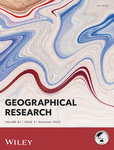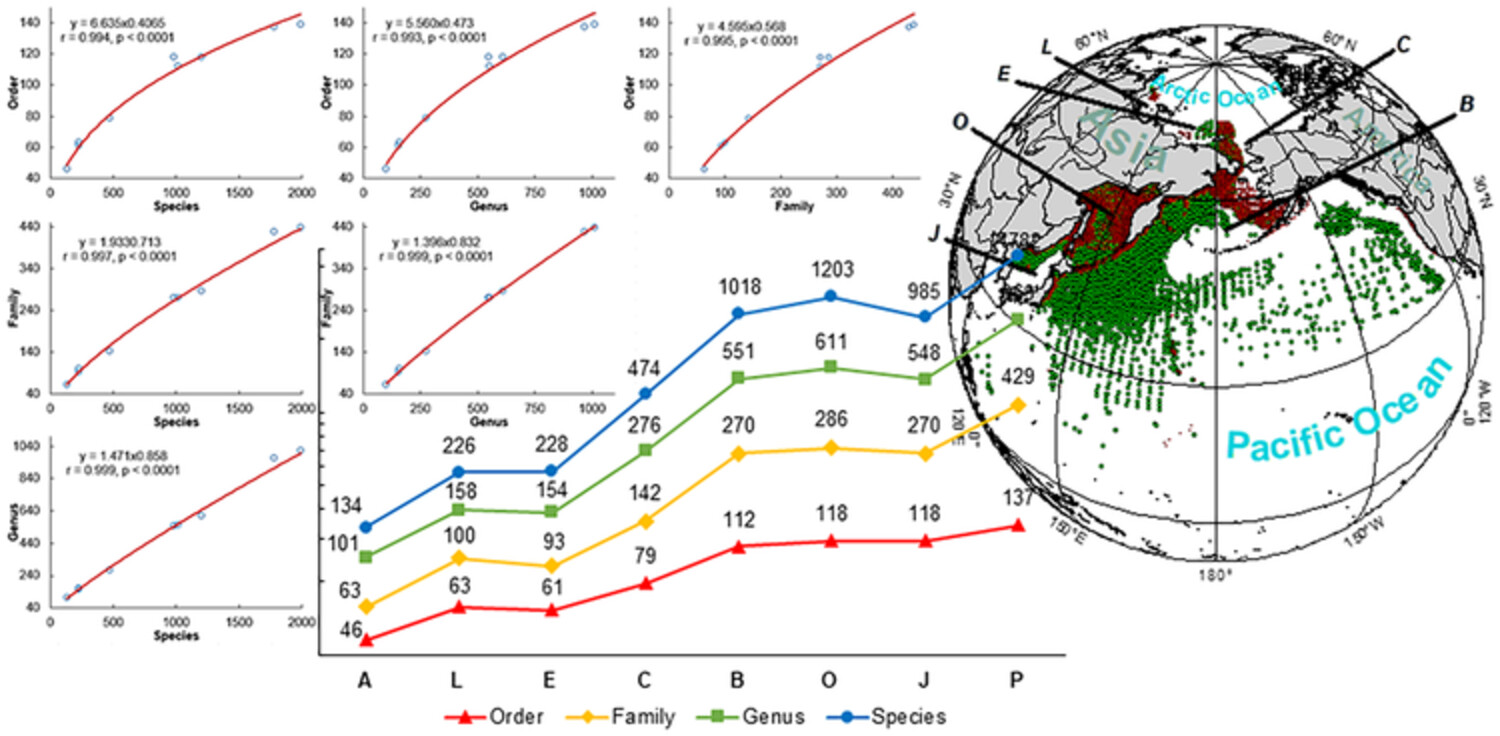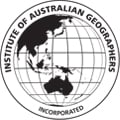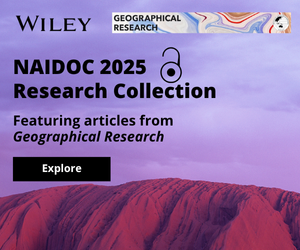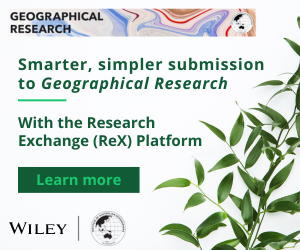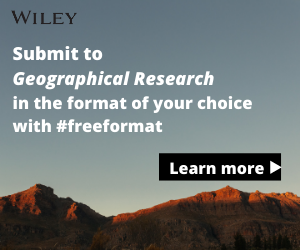Journal list menu
Export Citations
Download PDFs
ISSUE INFORMATION
EDITORIAL
Emergent landscapes of research publishing
- Pages: 410-412
- First Published: 08 November 2023
ORIGINAL ARTICLES
Indigenous biocultural rights and the Blue Mountains: Local and international policy challenges
- Pages: 413-428
- First Published: 15 June 2023
Using interviews, we engaged with experts and Indigenous peoples in the Blue Mountains to identify how Indigenous biocultural rights could be improved for park management, biodiversity conservation, and caring for Country. We consider some of the shortcomings of the UNESCO World Heritage guidelines and implementations in the Blue Mountains. The Australian government needs to better resource and support Indigenous leadership and co-management in the park.
Renewing the purpose of geography education: Eco-anxiety, powerful knowledge, and pathways for transformation
- Pages: 429-442
- First Published: 21 May 2023
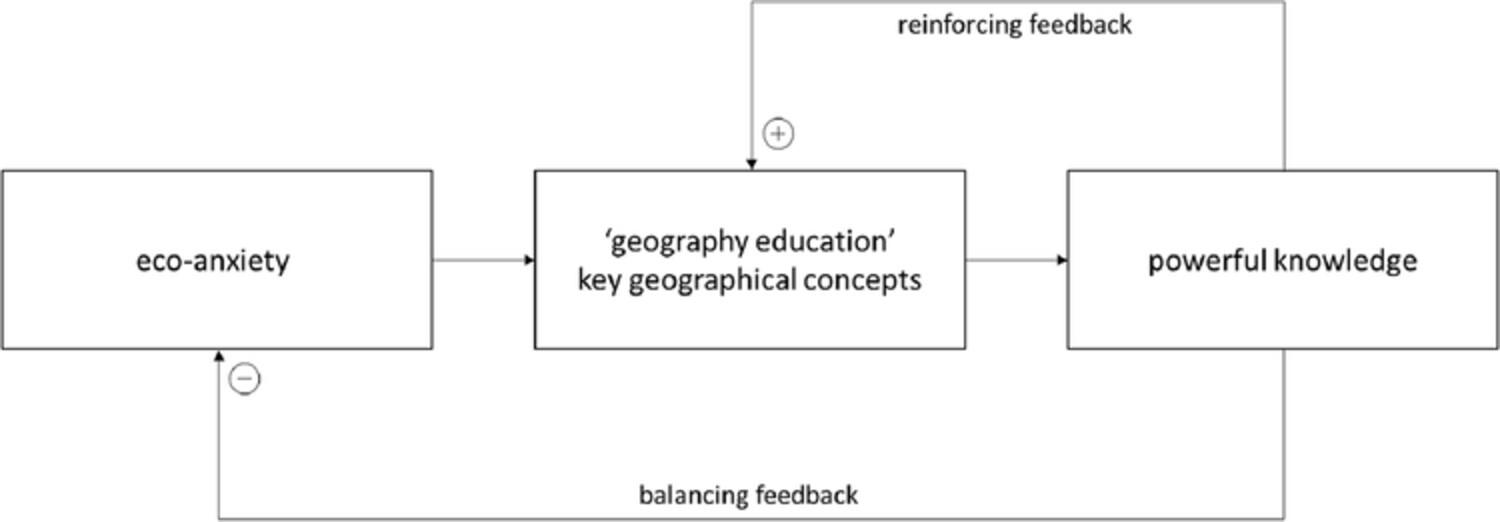
In this paper, we ask what schools and universities as place-based public institutions can do to serve our youth in effectively responding to eco-anxiety and building their capacities to learn to surf the unrelenting waves of change. To assist in this endeavour, we draw on the journeys that brought three young doctoral candidates to study geography. From their stories, we sketch what a geographical education could offer in terms of relevance, practicality, and in engaging with transformative system change.
An economic and financial geography of the Australian superannuation industry
- Pages: 443-457
- First Published: 05 July 2023
This is one of the first academic paper in the field of economic and financial geography to document and explain the growth and significance of Melbourne as the dominant superannuation centre in the Australian financial industry. It has far-reaching implications for understanding the Australian landscape of finance with implications for policy, welfare, and geographical theory. Its explanation of the rise of Melbourne combines happenstance with core concepts of spatial differentiation anchored in contemporary economic geography.
The determinants of occupational distribution in Seoul metropolitan area: Comparison of high- and low-skilled occupations
- Pages: 458-479
- First Published: 10 August 2023
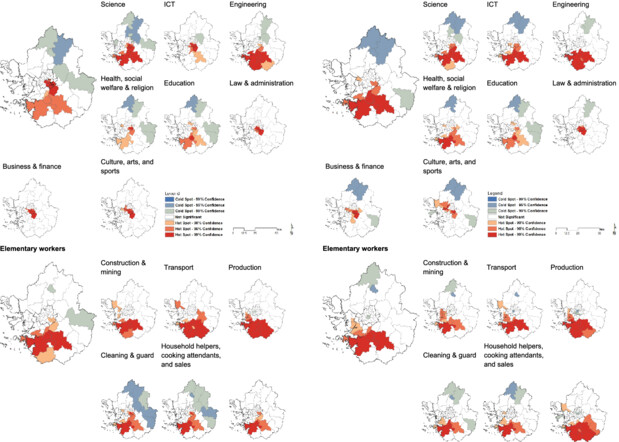
We analyse the spatial distribution patterns of professionals and related workers in high-skilled occupations and elementary workers in low-skilled occupations in the Seoul metropolitan area. We found that industrial economic drivers strongly influence the distribution of workplace and residence by occupation.
An enhanced descriptor extraction algorithm for power line detection from point clouds
- Pages: 480-502
- First Published: 29 May 2023
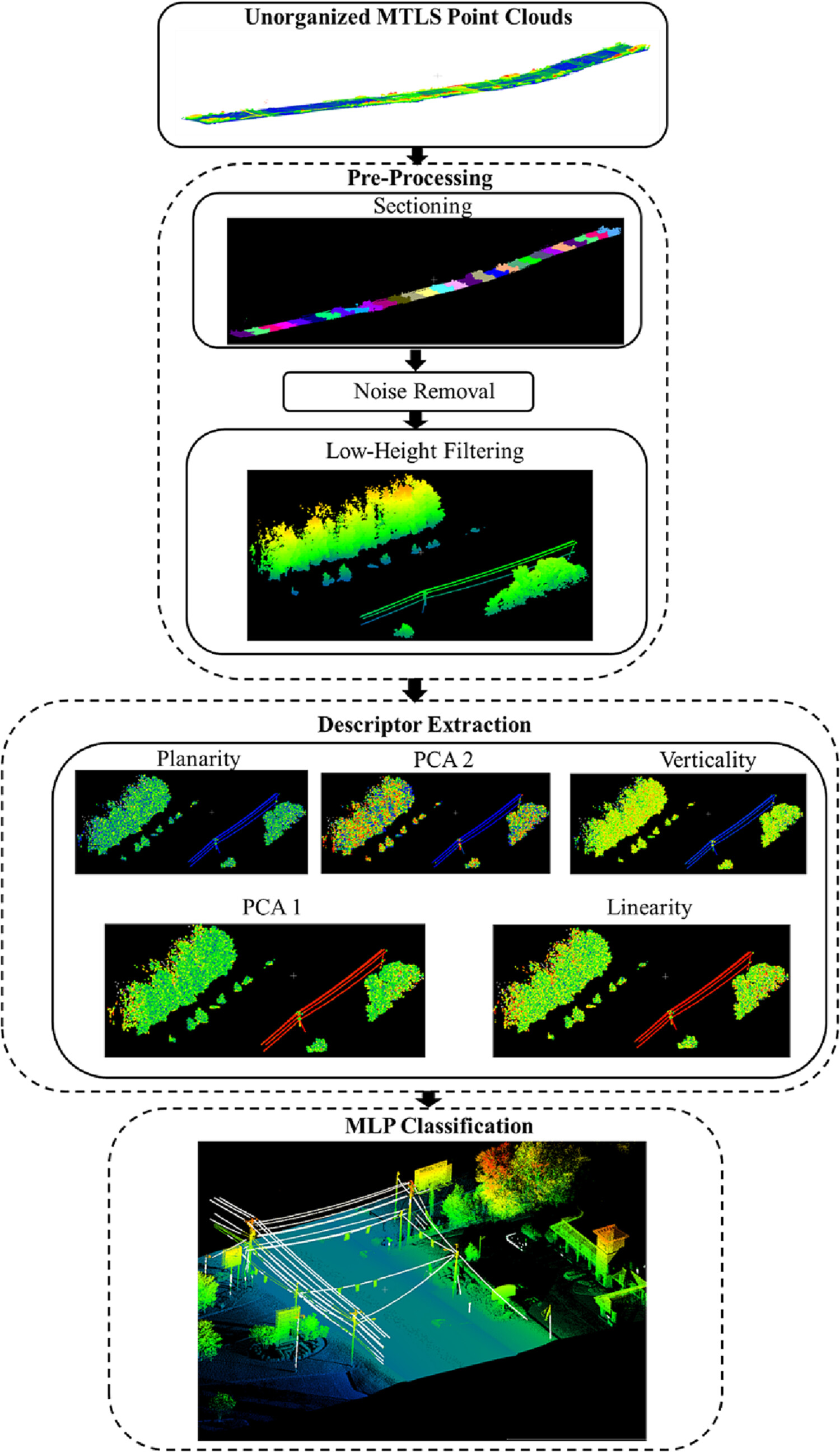
Manual information extraction from mobile LiDAR point clouds is a tedious, time-consuming, and laborious task. Therefore, researchers have focused on developing automatic methods for extracting various objects from point clouds. This paper proposes an automated method for power lines extraction from Mobile terrestrial laser scanning (MTLS) point clouds based on a multilayer perceptron (MLP) neural network. The proposed method works in three main steps: preprocessing, descriptors extraction and selection, and classification. Compared with deep learning algorithms the proposed method requires less training data and is much faster computationally.
Transboundary river governance and climate vulnerability: Community perspectives in Nepal’s Koshi river basin
- Pages: 512-524
- First Published: 26 April 2023
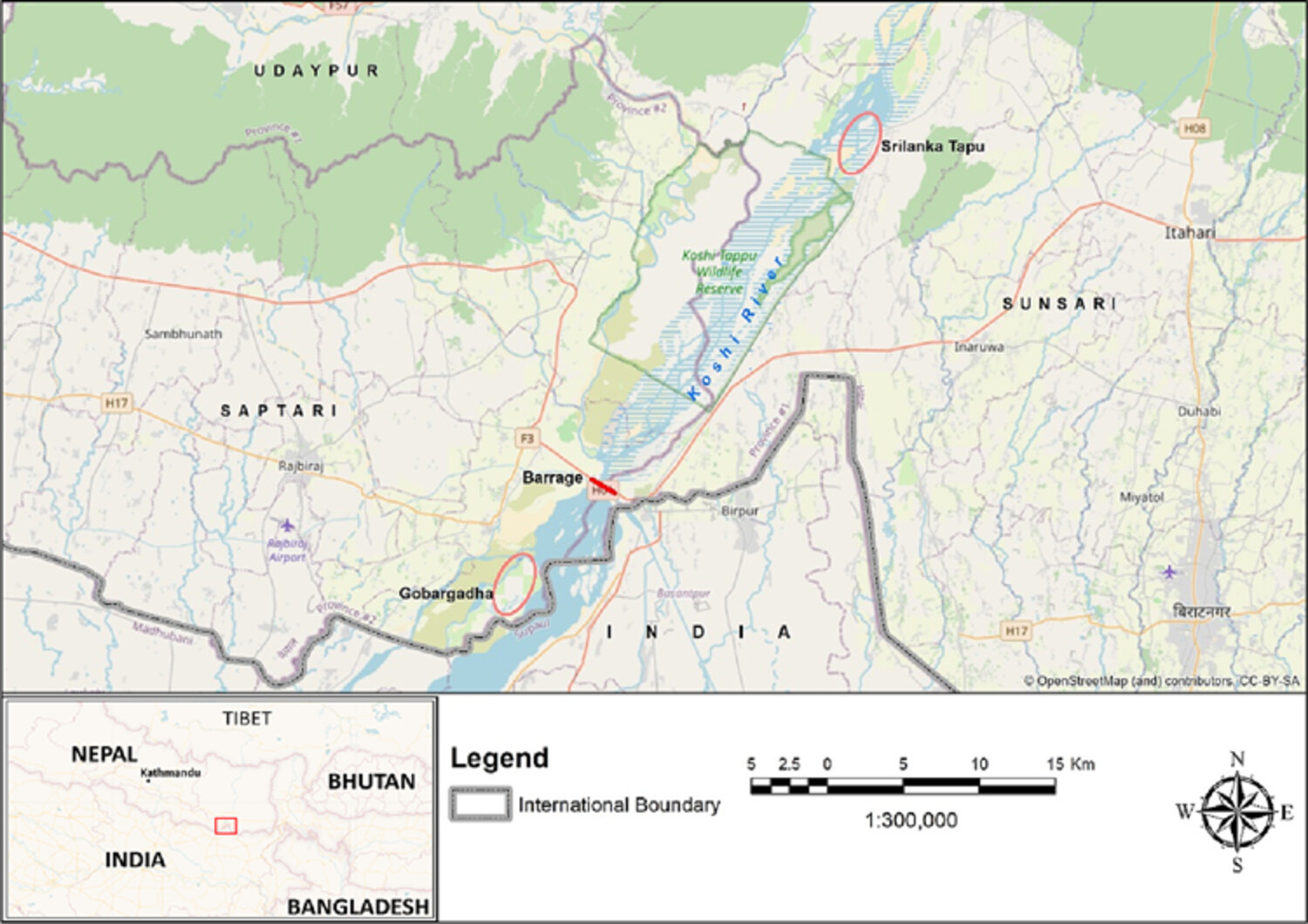
Vulnerability is relational and shaped by local socio-economic practices and by multi-dimensional and multi-scalar political economic processes over time. Transboundary river governance produces vulnerability, and that is pronounced in relation to key players' responsibilities and accountabilities and their critical and coordinating roles. Lack of good governance escalates vulnerability among riverine people, especially those residing around transboundary rivers where uncertain water flows are affected by climate change.
COMMENTARY
Living with anthropogenic climate change: Learning from environmental history to question narratives of doom, hope, and crisis
- Pages: 525-530
- First Published: 21 May 2023
We have to learn to live with anthropogenic climate change while addressing the causes and reducing the negative impacts on our planet, humans and on other species. This commentary offers a brief review of environmental history from deep time to recent waves of environmentalism demonstrating that climate change has occurred before, that people have faced perceived end times and that predictions of doom have helped us to act to avoid that potential scenario. The commentary presents a matrix of positions adopted in relation to climate change and environmentalism more generally, highlighting narratives of hope, doom and urgency and intended to alert us to possibilities and generate wider discussion about how we may live with anthropogenic climate change.
BOOK REVIEWS
Urban Blue Spaces. Planning and Design for Water, Health and Well-Being. By Simon Bell, Lora E. Fleming, James Grellier, Friedrich Kuhlmann, Mark J. Nieuwenhuijsen, Mathew P. White (Ed.), Abingdon and New York: Routledge. 2022. xxviii + 478 pp; diagrams, illustrations, references, appendix, index. $45.47/£39.99 paperback (ISBN: 9780367173180); free ebook (ISBN: 9780429056161)
- Pages: 531-533
- First Published: 08 August 2023
OBITUARY
Dr Percy Philip Courtenay (20 November 1931 to 15 April 2023)
- Pages: 537-540
- First Published: 13 August 2023




